- News
- Reviews
- Bikes
- Accessories
- Accessories - misc
- Computer mounts
- Bags
- Bar ends
- Bike bags & cases
- Bottle cages
- Bottles
- Cameras
- Car racks
- Child seats
- Computers
- Glasses
- GPS units
- Helmets
- Lights - front
- Lights - rear
- Lights - sets
- Locks
- Mirrors
- Mudguards
- Racks
- Pumps & CO2 inflators
- Puncture kits
- Reflectives
- Smart watches
- Stands and racks
- Trailers
- Clothing
- Components
- Bar tape & grips
- Bottom brackets
- Brake & gear cables
- Brake & STI levers
- Brake pads & spares
- Brakes
- Cassettes & freewheels
- Chains
- Chainsets & chainrings
- Derailleurs - front
- Derailleurs - rear
- Forks
- Gear levers & shifters
- Groupsets
- Handlebars & extensions
- Headsets
- Hubs
- Inner tubes
- Pedals
- Quick releases & skewers
- Saddles
- Seatposts
- Stems
- Wheels
- Tyres
- Health, fitness and nutrition
- Tools and workshop
- Miscellaneous
- Tubeless valves
- Buyers Guides
- Features
- Forum
- Recommends
- Podcast
news
"Only in Florida...": Rider with "armed cyclist" jersey, close-passing flags and countless bike lights goes viral... again; Jeremy Vine responds to those "focusing rage" on cyclists; A PROPER turbo set-up + more on the live blog
SUMMARY
No Live Blog item found.
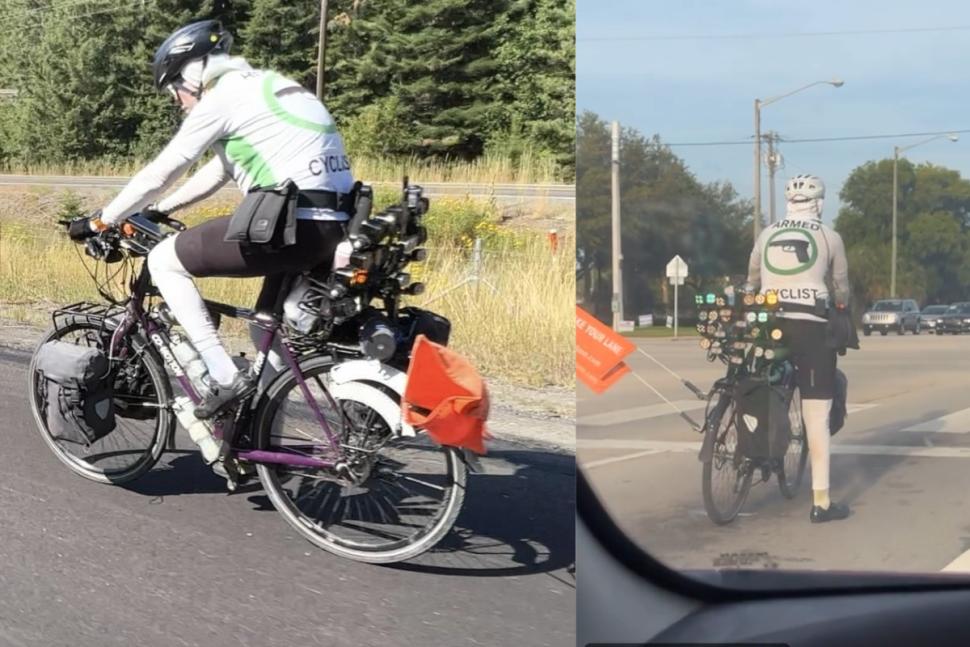 "Armed Cyclist"
"Armed Cyclist"18 October 2024, 10:27
"Only in Florida...": Rider with "armed cyclist" jersey, close-passing flags and countless bike lights goes viral... again
The latest sighting of Florida's "armed cyclist" has gone viral again...
We first covered the "armed cyclist" last year... his real name is James Whelan, by the way... a resident of Florida who has built up something of a cult following on his "Armed Cyclist" Instagram page and YouTube channel where he posts images from his cycling trips across America and, sometimes, run-ins with local law enforcement officers.
Whelan told road.cc that he runs 28 lights on his rear rack and eight on the front handlebars. "I don't get people turning left or right in front of me at all because they pay attention when they see a bright burst of light coming towards them", says Whelan.
"For the tail light I came up with that idea because I got tired of people not seeing me. Now people typically change lanes a half mile behind me when they see my lights.
"In South Florida there is a lot of road rage against cyclists just for being on the road. Most people can read what it says. When they see my jersey it has a huge calming effect on the people that don't like cyclists."
18 October 2024, 15:37
"We have reached the bottom": French cycling community "deeply shaken" by death of cyclist crushed by SUV driver in alleged road rage attack, as mayor says "it is unacceptable to die in Paris while riding a bike"
18 October 2024, 14:21
Homemade safety paddle "doing the job I designed it for"
Just the safety paddle doing the job I designed it for. 99% certain this driver would have close-passed me through the pinch point. pic.twitter.com/44w0uELpkc
— Bicycle-Riding Motorist (@MrHappyCyclist) October 17, 2024
"Just the safety paddle doing the job I designed it for," Dr Grahame Cooper reported. "99 per cent certain this driver would have close-passed me through the pinch point.
Of course, the accepted wisdom says we should move to the centre of the lane to prevent dangerous overtakes, which I do if I don't have the safety paddle. Like this, perhaps? pic.twitter.com/UMRzgPDjtA
— Bicycle-Riding Motorist (@MrHappyCyclist) October 18, 2024
He's penned the full story of the paddle here if you want to find out more...
18 October 2024, 14:04
"I liked it at first, but it's a bit annoying": Wout Van Aert on Wout van Aert
You might have heard about the up-and-coming 15-year-old Belgian cyclist with a very famous namesake...
Naturally, the Belgian press has tracked Wout Van Aert down (note the slight difference with Wout van Aert, who has a smaller 'v' when named in full), Sporza speaking to the 15-year-old aspiring racer about the amusing tale.
"I liked it at first," the young Van Aert says. "But when I sign up for a race, they often remind me that I have the same name as the great Wout van Aert. That's a bit annoying, but not really bad. In the meantime, they know that there is someone else racing with that name.
"And we're not distant relatives either. My family name is written with a capital "V", not with a smaller "v" like professional cyclist Wout van Aert (whose grandparents are Dutch). I don't think Wout van Aert knows that there is another Wout Van Aert racing. It would be fantastic to meet my namesake and idol in real life."
And of course, who does Van Aert prefer? Wout van Aert or Mathieu van der Poel?
"I'm not a fan of Mathieu van der Poel. I'm not against Van der Poel, I'm just for Van Aert."
18 October 2024, 13:10
Labour MP who is Parliamentary Under-Secretary of State for Transport: "Yes, I would feel safe letting my children cycle on London's roads"
Simon Lightwood, the Labour MP for Wakefield and Rothwell who is also Parliamentary Under-Secretary of State for Transport, has championed giving children "confidence" to cycle from a young age, saying it is "so important to instil those behaviours and values to be able to use active travel".
Speaking to the Metro while visiting a community transport provider in north-west London, Lightwood also said he would feel safe letting his children, aged seven and eight, cycle in London.
> Labour government to invest "unprecedented levels of funding" in cycling
"I would be with them obviously and like any parent and be guarded of them, but it's no particular reflection on roads in London or Wakefield," he said. "Obviously, one of the things we invest in is bike-ability, so that people from a young age are given the skills and confidence to then go out and cycle. I think it's a really important stage for young people to instil those behaviours and values to be able to use active travel."
The comments come at the end of a week when research by Swapfiets revealed that 90 per cent of Brits fear cycling in UK cities, with concerns about collisions, road rage and theft putting people off.
18 October 2024, 10:40
Active travel campaigners blast "clumsy, unworkable, and discriminatory" plan to ban cycling in Birmingham city centre, which council says will target food delivery cyclists "speeding around city without care"
18 October 2024, 09:53
Now THAT'S a turbo set-up...
While we're all trying to make turbo training more bearable...
Maybe we should really be aspiring to make it more unbearable... no Zwift, no fan, no music, no Netflix... just watts...
18 October 2024, 09:41
"It is very special": Katie Archibald back at the top of the track cycling world having missed Olympics due to numerous leg injuries from garden fall
Speaking to the BBC TV cameras after last night's rainbow jersey-winning ride, Katie Archibald called the victory "very special", the team pursuit success the culmination of months of rehab from horrific leg injuries sustained in a freak garden fall when she tripped on a step just weeks before the Olympics.
Archibald broke two bones in her lower leg, ripped ligaments, and dislocated her ankle and missed the Paris Games.
"It is a deep breath, it is feeling where you are meant to be and a team you are meant to be part of and what a treat to be part of this squad. It is very special," Archibald said following last night's victory, her fifth world title.
18 October 2024, 09:22
More medals for Great Britain at UCI Track World Championships, as women's team pursuit squad crowned world champs
The British women's team pursuit squad, spearheaded by Katie Archibald's return from a horrendous injury that saw her miss the Olympics, won the event at the 2024 UCI Tissot Track World Championships last night. Archibald, Jess Roberts, Josie Knight and Anna Morris qualified fastest and caught the Chinese team just past the halfway mark to reach the gold medal final, Meg Barker replacing Roberts in the line-up as the Germans were defeated.
The men's team pursuit line-up of Ollie Wood, Ethan Hayter, Charlie Tanfield and Josh Charlton also won a medal, taking silver in the men's event. Defeated in the final by host nation Denmark, Tanfield said the group could be satisfied "we got the most out of ourselves".
World Championships debutants Noah Hobbs and Harry Ledingham-Horn also deserve a shout-out, finishing sixth in the men's scratch and fourth in the men's keirin respectively.
18 October 2024, 07:57
"The more cycle, the fewer drive. The fewer drive, the fewer die...": Jeremy Vine responds to those "focusing rage" on cyclists, makes the case for floating bus stops "making roads safer for everyone"
The floating bus stop conversation has picked up pace in recent times. A quick explainer for anyone not aware of the infrastructure design... it's essentially those bus stops that are built out into the road with a cycle lane passing on the pavement side, pedestrians using a zebra crossing or other crossing across the cycling infrastructure to access the bus stop. I could just show you what we mean, I guess...
In design terms they have been used to allow for protected cycleway routes on busy urban roads punctuated by bus stops, removing cyclists from the potential conflict and danger that a part of the road with bus drivers pulling in and out may cause a vulnerable road user. The bus has to be able to access the roadside to collect/drop off passengers, the cycle lane still needs to be protected to keep users safe, how are these two points factored in?
What's been heard in response is criticism from some, notably some campaigners for blind people, who say the design puts pedestrians in danger...
> "Like playing Russian roulette": Blind people raise concerns about 'floating' cycle lane bus stops
In May, we reported that the former Transport Secretary Mark Harper was considering a ban on floating bus stops, something London's Walking & Cycling Commissioner Will Norman said "could stop new protected cycle lanes" and risked "putting lives at risk across the country".
That came a year after Mayor of London Sadiq Khan had promised to conduct a review of floating bus stops and assured that he's committed to reducing danger on cycling lanes, after 164 campaign groups raised safety concerns for visually impaired pedestrians.
No evidence of any incident was raised in those concerns and, in January, leaked Transport for London documents suggested that floating bus stops might "feel dangerous" but there is a "low risk" of a collision.
Back to the present day, Jeremy Vine, pro-cycling voice and BBC/Channel 5 broadcaster, took to social media to make the case for supporting the infrastructure design, telling his 780,000 Twitter followers... "Floating bus stops protect vulnerable road users — chiefly, cyclists. Making it safer to cycle gets more people riding bicycles. The more cycle, the fewer drive. The fewer drive, the fewer die. So floating bus stops make the roads safer for EVERYONE."
Naturally, the concerns for blind people were raised, to which Vine's stock reply was: "Every year 1,700 killed by drivers. Every year six people killed by cows. Every year three killed by cyclists. Look at where you're focusing your rage, have a think, and then we can talk."
Thoughts?
Dan is the road.cc news editor and joined in 2020 having previously written about nearly every other sport under the sun for the Express, and the weird and wonderful world of non-league football for The Non-League Paper. Dan has been at road.cc for four years and mainly writes news and tech articles as well as the occasional feature. He has hopefully kept you entertained on the live blog too.
Never fast enough to take things on the bike too seriously, when he's not working you'll find him exploring the south of England by two wheels at a leisurely weekend pace, or enjoying his favourite Scottish roads when visiting family. Sometimes he'll even load up the bags and ride up the whole way, he's a bit strange like that.
Latest Comments
- mjc2669 39 min 59 sec ago
Boardman is brilliant at getting the point over. It's all about presentation and showing the benefits to all.
- wtjs 1 hour 50 min ago
Or, alternatively, get the Aldi front and rear for £15. The rear doesn't flash like the previous models, but does have the braking function. The...
- Hirsute 2 hours 42 min ago
There is no way on that terrain the wheels would clog up.
- TempleOrion 3 hours 48 min ago
No. But do you think Trump is? 🤡💩🤣
- chrisonabike 5 hours 8 min ago
Was a stocking-filler type thing but always handy - reflective spoke straws. (They're not reflecting as I turned the flash off.)
- hawkinspeter 6 hours 39 min ago
Personally, I like reading about the new and/or expensive stuff even if I've got no intention of buying it. When I get the Cycling UK mag, I tend...
- hawkinspeter 9 hours 10 min ago
Dont forget Linford Christie
- Secret_squirrel 10 hours 23 min ago
I'm confused. What base layer isn't damp after a warm effort - it's the purpose of their entire existence. Wringing wet I might agree with. ...
- pockstone 13 hours 21 min ago
To add to the comedic potential, I really hope said chef was dressed in whites, including a toque blanche, and armed with a whisk and cleaver.
- mark1a 23 hours 23 min ago
Don't open at Edinburgh Fringe with that one.
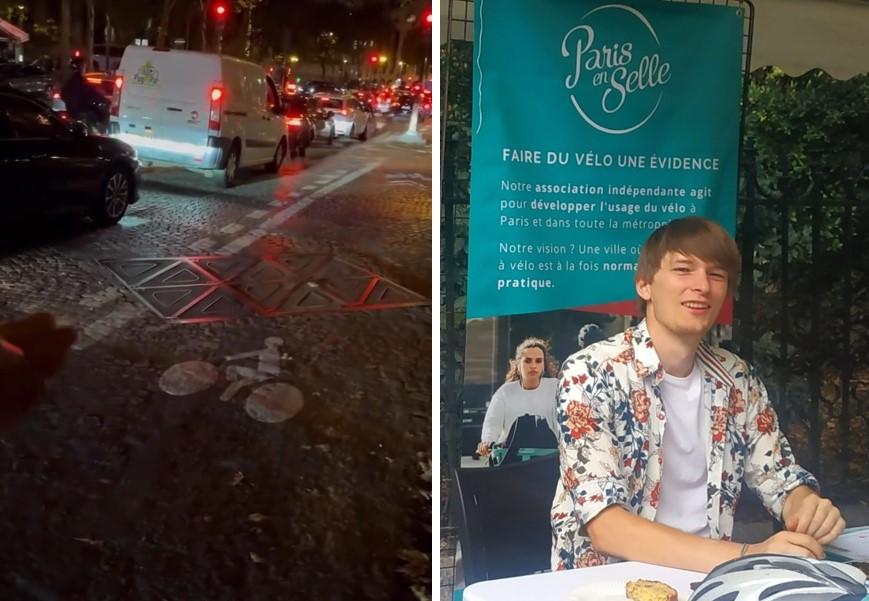

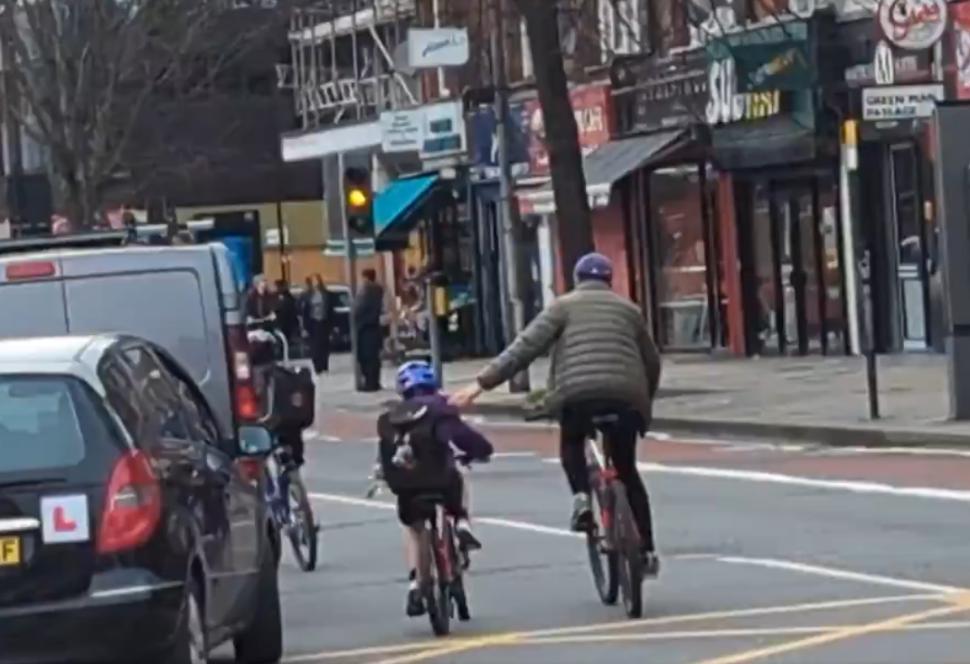
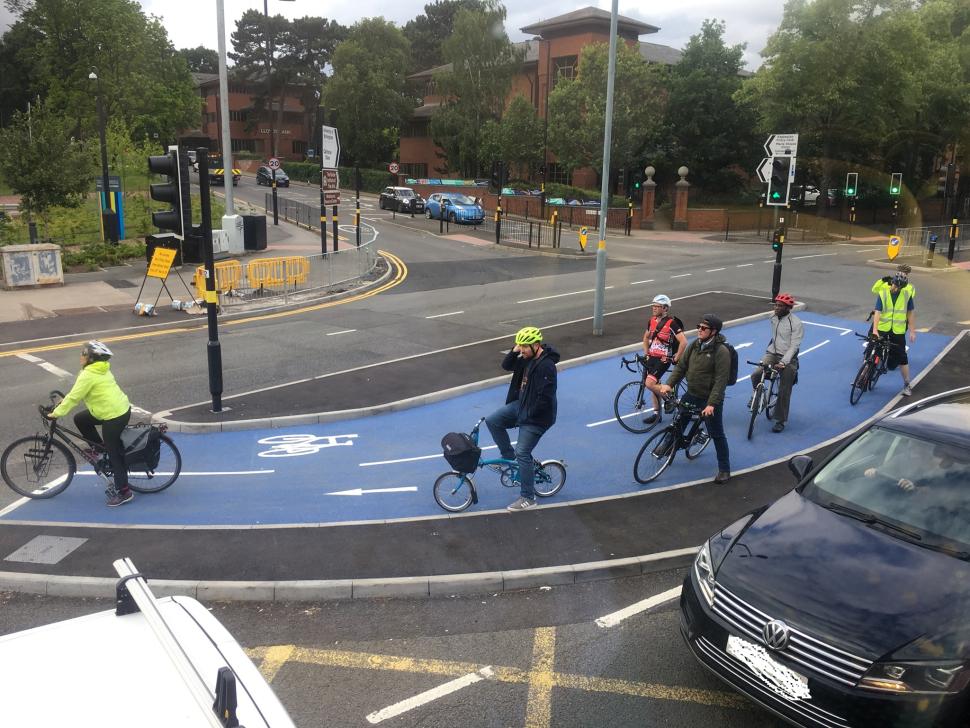
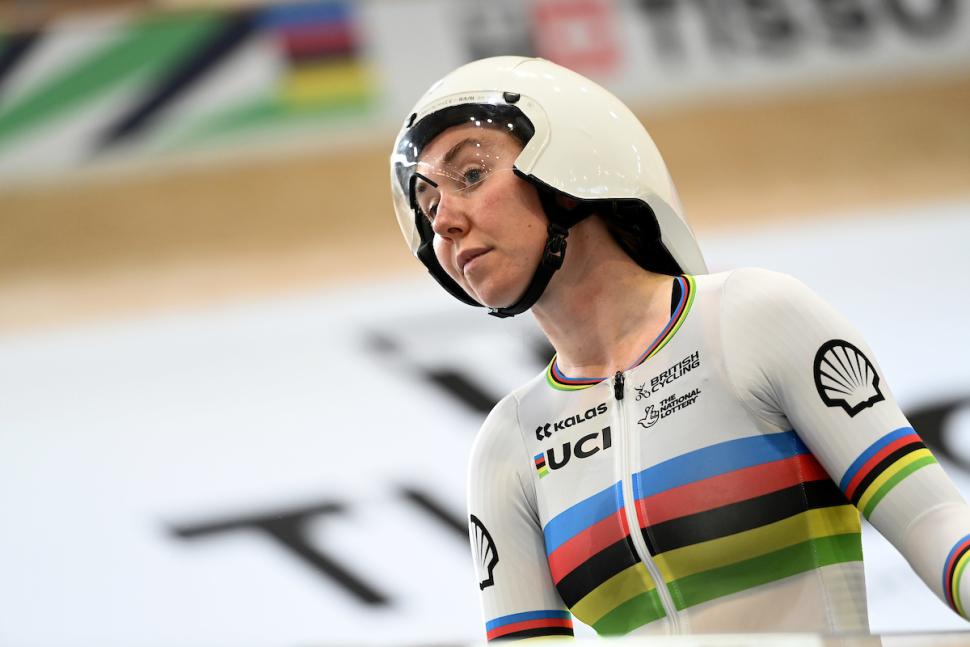
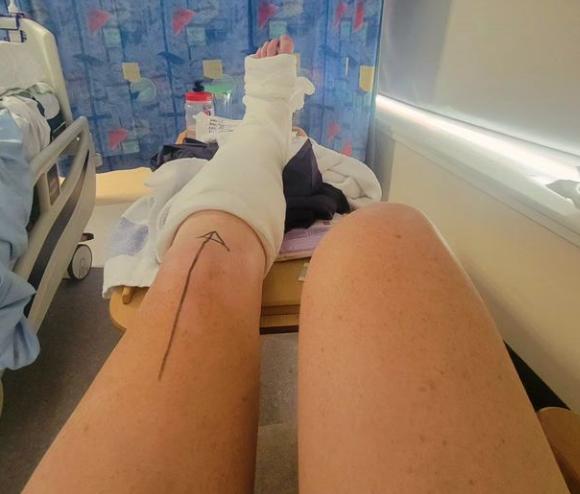
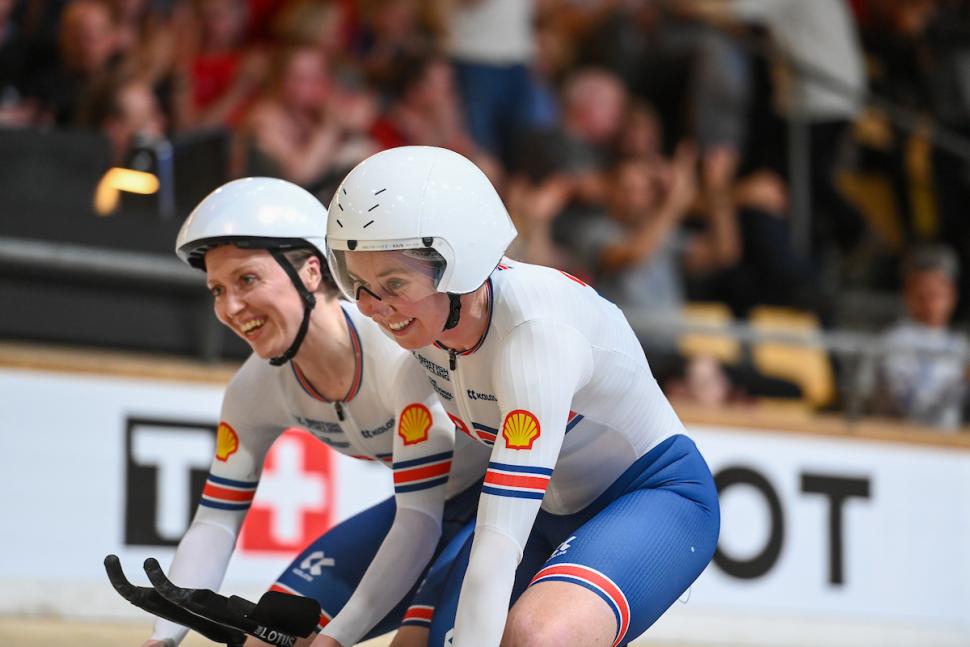

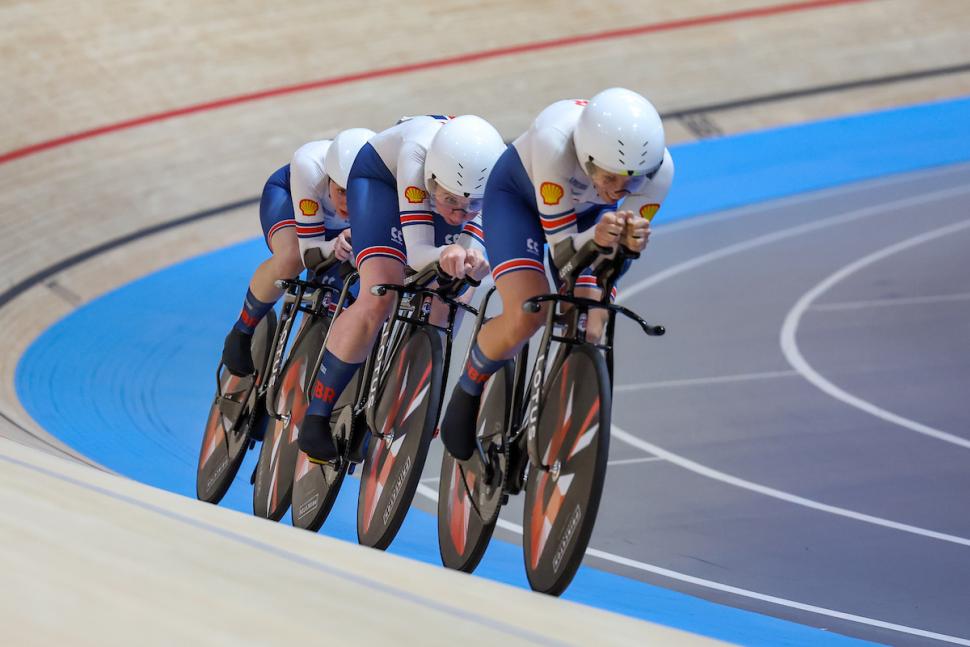
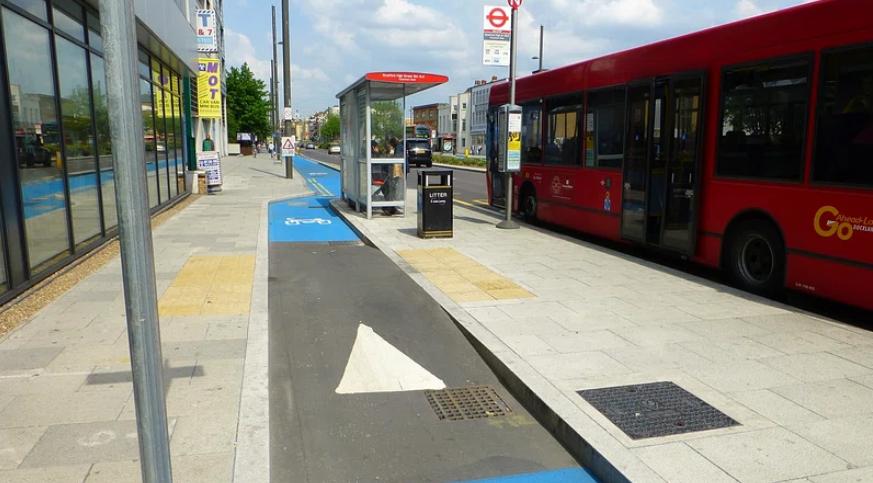
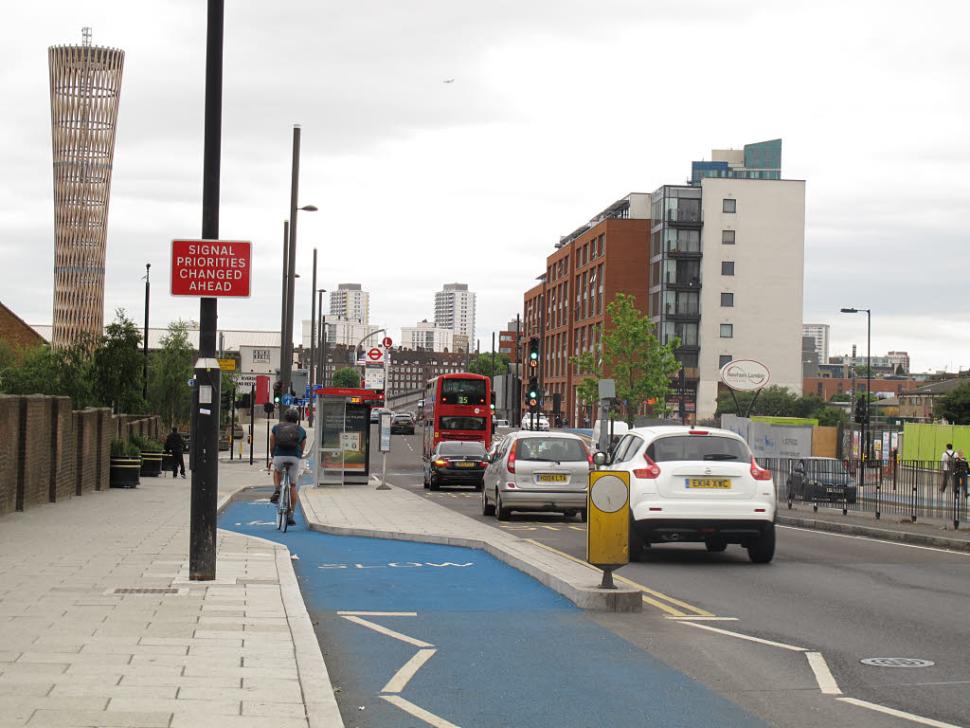
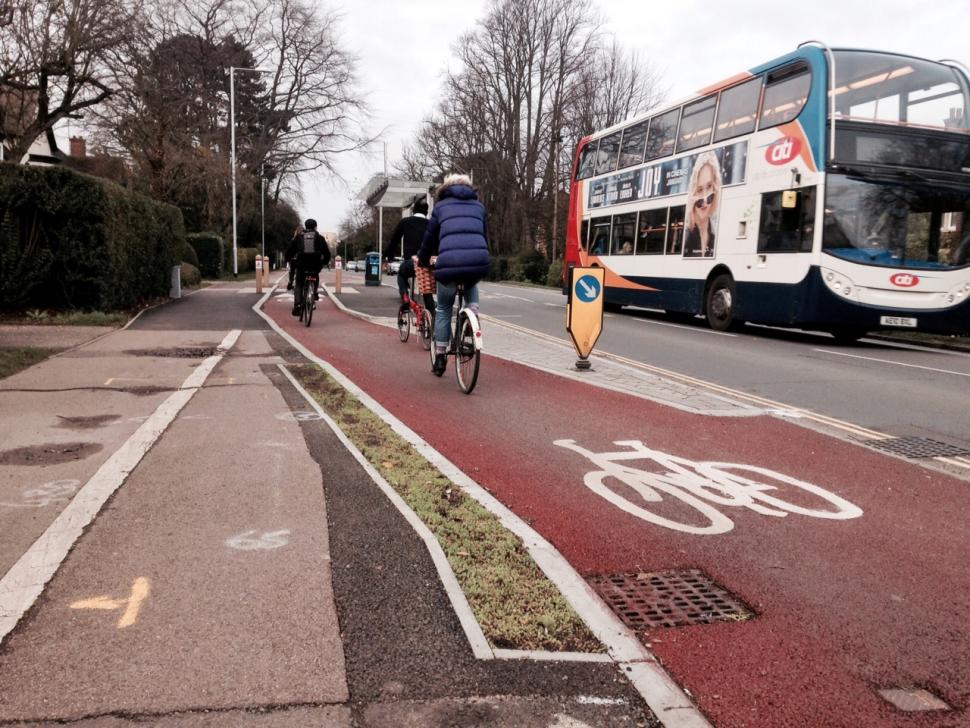
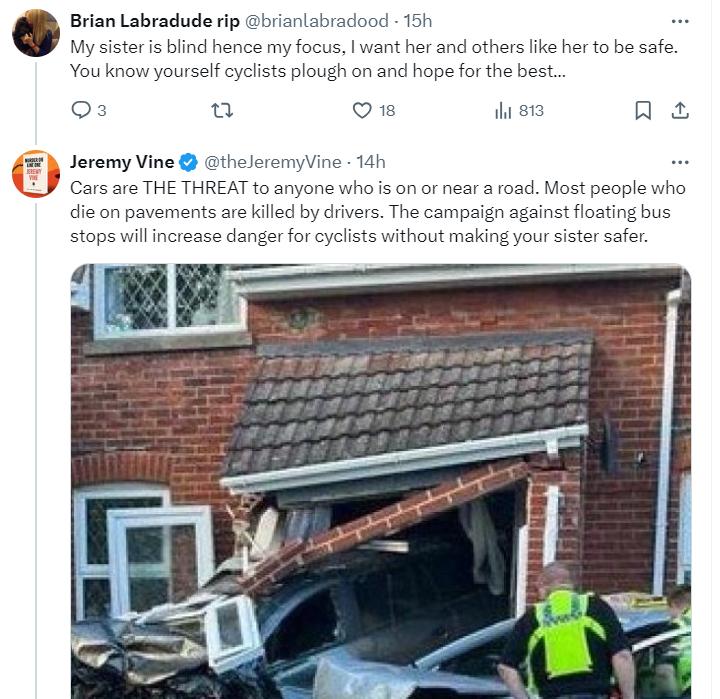
Add new comment
46 comments
Honestly. "Just don't bother with Zebra crossings over cycle lanes". Highway code is clear, peds are the most vulnerable and should have right of way. God forbid a cyclist is ever inconvienced and has to slow down and stop for another! I bet that same stupid argument has been used on the telegraph comments section "Its EASY to cross a road, you don't need zebra crossings!".
This is the poisoned attitude that so many young cyclists have. When in control of a vehicle, you have a responsibility to others. Don't asume that being on a bike or in a car, somehow makes you immune to the rules that others have to follow. Stop of Zeb's and stop at Red's. It's not hard. Don't be a c**t.
If Red's not in go and look for him at Andy Dufresne's place...
Sage advice for one and all I think. I might prefer personally to use a non gendered term but I agree with the sentiment.
At first I thought your comment was clever sarcasm but then I realised, no, just another Guardian reading woke lefty..
You say that like it's a bad thing...?
I refer the honourable gentleman to the comment I made earlier.
I would absolutely agree with that for the vast majority of pedestrians but it doesn't solve the problem for visually impaired people, does it? They can't look for the gap in the flow of cyclists and so they do need somewhere where at least theoretically cyclists are going to stop when they see them wanting to cross. I did think of a solution for the floating bus stop problem last night as I was riding through several in Battersea, the trouble is it would be a lot more expensive than having a few white lines on the road, but anyway: why not have a post by the side of the crossing with a large sign on it reading "Caution, vulnerable person crossing" which could be illuminated/flash and maybe have some kind of audible warning as well when a pelican-style button on the post was pushed. This could then be used by the elderly, disabled, parents with buggies etc to alert cyclists. As I say, it would be pricey but I think it could work; I'm convinced that the majority of cyclists who behave in an inconsiderate manner are just being thoughtless rather than deliberately aggressive and that given a suitable warning that a vulnerable person needed to cross the cycle lane they would respond positively.
The problem, of course, is that it could actually be used by anyone. Which means if you see the warning signs you have no idea whether there's a real vulnerable person there, an entitled dickhead, or just someone who thinks it's funny.
And when that happens, the signs don't get respected because they're mostly bollocks and you're back to square one.
There is that potential for it to be a problem although if it was being used by genuine crossers it wouldn't matter if they were really vulnerable or "an entitled dickhead", given that cyclists should stop to let passengers across from a floating bus stop anyway, regardless of disability, the effect would be the same. Of course the occasional knobber might think it's funny to press it without having the intention to cross; this occasionally happens with pelican crossings but pretty rarely, I don't see why it would happen more often with my suggestion. I still think it has some merit (well I would say that, wouldn't I?), the cost would be the main stumbling block although it costs a fortune to build a floating bus stop so as a percentage of the overall outlay I don't think it would push the costs up enormously.
I guess the criteria would be solely its value or not in reassuring the worried crossers. Seems some have now just decided cyclists can't be trusted and can't be detected (unlike drivers or cyclists on the road apparently...) So not sure of the value.
For cyclists - at least from my observations in Edinburgh - the issue is less people stepping out than people standing around (where more than a couple are waiting they tend to occupy the cycle path). Or people walking several abreast (hello abreast- fanciers!) on footway and cycle path because of the natural human social tendency to travel like this.
I suspect that the solution is - like with cars - kind of "might is right". Once there are sufficiently greater numbers of cyclists it becomes less pleasant * - and socially less acceptable - for people to be in "someone else's space".
* because you're worried about drivers (roads) or cyclists (cycle path) running into you, and because you will get some comments from those "entitled" people using "their space" - eg. "Get out of the road / cycle path, you ..."
Well, I think they probably can to some extent, with a guide dog or some technical radar/imaging device.
No doubt a crossing that is adhered to will make this easier, but there can't be crossings everywhere and I am sure there are instances where they need to use a shared path, cross a road or cycle lane, that is not near a bus stop. So what happens then?
My preference would be for greater protections for blind/partially sighted, so that other road users (including other pedestrians!) pay more attention to the fact they are there and accommodate their movements, irrespective of the presence of a crossing or not. Maybe with some legislation and an educational advertising campaign - posters on bus stops would seem appropriate!
Different speeds / gap sizes - but how do those dogs manage to cope with cars - or even cyclists already riding on roads? (And let's face it even on London's "world-beating" cycle infra it's not nose-to-tail everywhere all the time - though there are some impressive crowds in some videos...).
I was going to say "don't mention side-roads!" - although I presume the response is "but people can can hear the cars coming but not the cyclists". Though listening for cars is imperfect and in busy city locations can be less helpful.
TBH it is hard to make this sound positive for partially sighted people in the short term - it's more asking for apparent sacrifices from those who have the fewest priveledges. Even though in the longer term with things like "continuous footway at side roads", greater distance from motor traffic (you're behind the cyclepath) and reduced motor traffic volumes and speeds it really is an improvement.
The RNIB and other relevant organisations should be required to produce stats showing how many people (including those who are visually impaired) are affected (hurt/killed) in road/pavement collisions to identify where the biggest risk is from.
To justify their going after the element which is far less dangerous.
Partly. I think the RNIB has been pretty good at working with others in the past. (It's even less the case that "the blind and visually impaired lobby is setting the tone" than "cyclists have taken over...) However there does seem to have been an increase in concern recently: I'm not sure if this is just some work by a previously fringe group (NFBUK) in getting their "no to bus stop bypasses" message across. I suspect it could have something to do with a sudden receptiveness of certain politicians and the era of "plan for drivers" (e.g. selective concern).
That aside - there are a couple of issues:
a) Right design. Of the common designs one is definitely "inferior" for pedestrians (Copenhagen-style - although I'm not aware this is causing carnage over there...). The design more commonly used in e.g. NL has some benefits, albeit it needs a bit more space. (More on both here).
b) Designs should be "intuitive" as much as possible e.g. should be clear without needing tons of signs / markings. They should also be standardised as much as possible. This helps everyone learn them (including cyclists and those without visual impairments!) Exact designs certainly vary in NL but we have the luxury of not having so many "historic situations" in the UK. (Although actually the idea is not new in the UK at all - but previously it was really "for cars"!).
c) Getting the right implementation is very important. So appropriate level changes / kerb heights and angles / direct crossing to the boarding area as appropriate.
It's also not simply a matter of "show us the KSI numbers then". Just as with driving impacting active travel we have to be aware of the effect of "suppression of another group".
If those with visual impairments are simply afraid of going certain places / using certain facilities that is an issue, whatever the actual casualty numbers.
(Of course - we could ask for actual numbers on that but of course that could mean bringing about the situation that we're trying to avoid...)
I don't think that addressing those concerns should mean simply not going ahead with certain kinds of infra which appear (from long testing) to be very safe. Or restricting cycling. But this concern really does need to be addressed.
Consider the cycling analogy - it is statistically very safe to cycle. Yet most people in the UK simply won't cycle on the roads in traffic, where motor traffic speeds are high or around larger vehicles (again - slight pinch of salt when people are reporting why they aren't doing something).
Saying "it's safe - very few die or are maimed! Just get on your bike and do it!" does nothing to address this fear and change behaviour (even though the fear may exaggerate the danger). Even saying "but these are all trained and tested drivers! They're even driving vehicles with identifying number plates, and there are road police etc." likewise doesn't reassure anyone.
Finally there's also the fact that this is "change". Until the UK has (fairly) standard infra and cyclists using it everywhere some people are still going to be "startled" to find cyclists "in their space". (I've discovered this with pedestrians using infra that's been there for years, in Edinburgh...)
And some cyclists are going to make mistakes due to ignorance. And there is concern about "bad cyclists" - however the latter isn't something we can entirely address with infra. There will always be a few "yobs" - but that applies to people walking, driving and cycling and is a different set of issues). We just need to ensure that new designs won't make things *worse* given the likely mistakes and perhaps some kinds of misbehaviour we will get.
Overall - unfortunately I think as with most changes it may be "it gets a bit worse before it gets much better" - and those with e.g. visual impairments as normal may be most impacted.
Pages